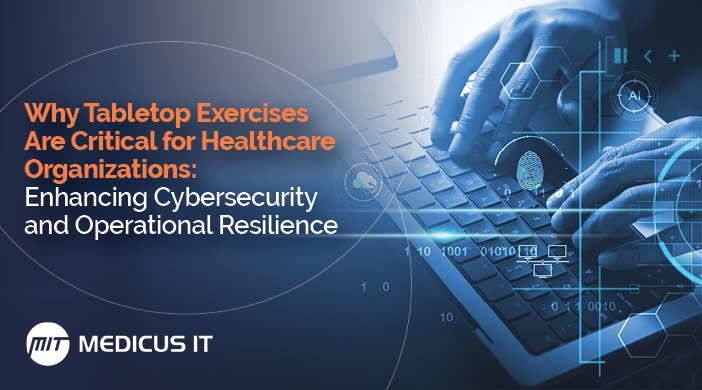Why Tabletop Exercises Are Critical for Healthcare Organizations: Enhancing Cybersecurity and Operational Resilience
In the wake of the recent CrowdStrike event, organizations are increasingly focusing on tabletop exercises as a critical component of their cybersecurity strategy. These exercises are essential for simulating real-world scenarios and assessing an organization’s preparedness for incidents that could disrupt business operations. Here’s a detailed look at why tabletop exercises are particularly vital for healthcare organizations:
Why Tabletop Exercises Are Essential for Healthcare Organizations
Healthcare organizations operate in a high-stakes environment where protecting sensitive patient data and maintaining operational continuity are paramount. Tabletop exercises are crucial for evaluating and enhancing incident response plans and team readiness. These drills help identify vulnerabilities in current strategies, allowing healthcare organizations to fortify their defenses and ensure they can effectively respond to potential disruptions. Given the sensitive nature of healthcare data and the critical need for uninterrupted services, thorough preparedness is key.
Designing Realistic Scenarios for Healthcare
Effective tabletop exercises for healthcare organizations require scenarios that accurately reflect the specific threats they face. Healthcare systems are particularly vulnerable to cyberattacks, data breaches, and operational disruptions. Scenarios should be tailored to these threats, such as ransomware attacks, data breaches involving protected health information (PHI), and system outages impacting patient care. By focusing on these realistic scenarios, healthcare organizations can better prepare their teams for the types of incidents they are most likely to encounter.
University of Vermont Medical Group (UVM Medical Group)
In December 2020, UVM Medical Group faced a ransomware attack that encrypted patient data. Drawing on insights from a prior tabletop exercise, they effectively managed the incident by implementing their incident command structure, ensuring clear communication, and utilizing enhanced data recovery protocols, minimizing disruption to patient care.
Enhancing Collaboration and Communication
Tabletop exercises foster a collaborative environment where various stakeholders within healthcare organizations can work together to address potential emergencies. These exercises bring together IT professionals, clinical staff, administrators, and other key personnel to discuss and coordinate their roles and responses. Improved communication and coordination during these exercises can lead to more effective management of real-life incidents, ensuring that patient care is not compromised and that all aspects of the organization can respond cohesively during a crisis.
Driving Continuous Improvement
Regular tabletop exercises enable healthcare organizations to continually refine their incident response plans. The healthcare sector faces ever-evolving threats and technological advancements, making it crucial to stay agile and responsive. Through ongoing exercises, organizations can identify and address weaknesses in their plans, integrate new threat intelligence, and adapt to emerging risks. This continuous improvement helps healthcare organizations remain resilient and prepared for any incident that may arise.
Utilizing Specialized Resources
Organizations such as the Cybersecurity and Infrastructure Security Agency (CISA) offer specialized resources tailored to the needs of healthcare organizations. These resources include comprehensive exercise packages with customizable scenarios, objectives, and discussion questions specifically designed for the healthcare sector. Leveraging these resources can help healthcare organizations conduct effective tabletop exercises, ensuring they cover all relevant aspects of their operations and compliance requirements.
The Importance for Healthcare Organizations
In summary, tabletop exercises are a vital tool for healthcare organizations to enhance their cybersecurity posture and operational readiness. They help organizations assess their preparedness, improve team coordination, and adapt to evolving threats. Given the critical nature of healthcare services and the sensitive nature of patient information, maintaining a robust and responsive incident response strategy is essential. By regularly engaging in tabletop exercises and utilizing specialized resources, healthcare organizations can ensure they are well-equipped to handle potential incidents and continue providing uninterrupted, high-quality care.
James Forsythe, VTE is a seasoned technology executive in the healthcare industry with over 15 years of experience, He has a deep understanding of the intersection between technology and healthcare and has witnessed the rapid evolution of digital solutions in healthcare, from electronic medical records and telemedicine to advanced data analytics and artificial intelligence applications. James’ expertise lies in leveraging technology to enhance patient care, improve operational efficiency, and ensure data security and privacy. With a strategic mindset and a passion for innovation, James is committed to driving positive change and delivering impactful solutions in the dynamic landscape of healthcare technology.
If you would like more information about this or other Healthcare IT related topics, James can be reached via email at jforsythe@medicusIT.com

